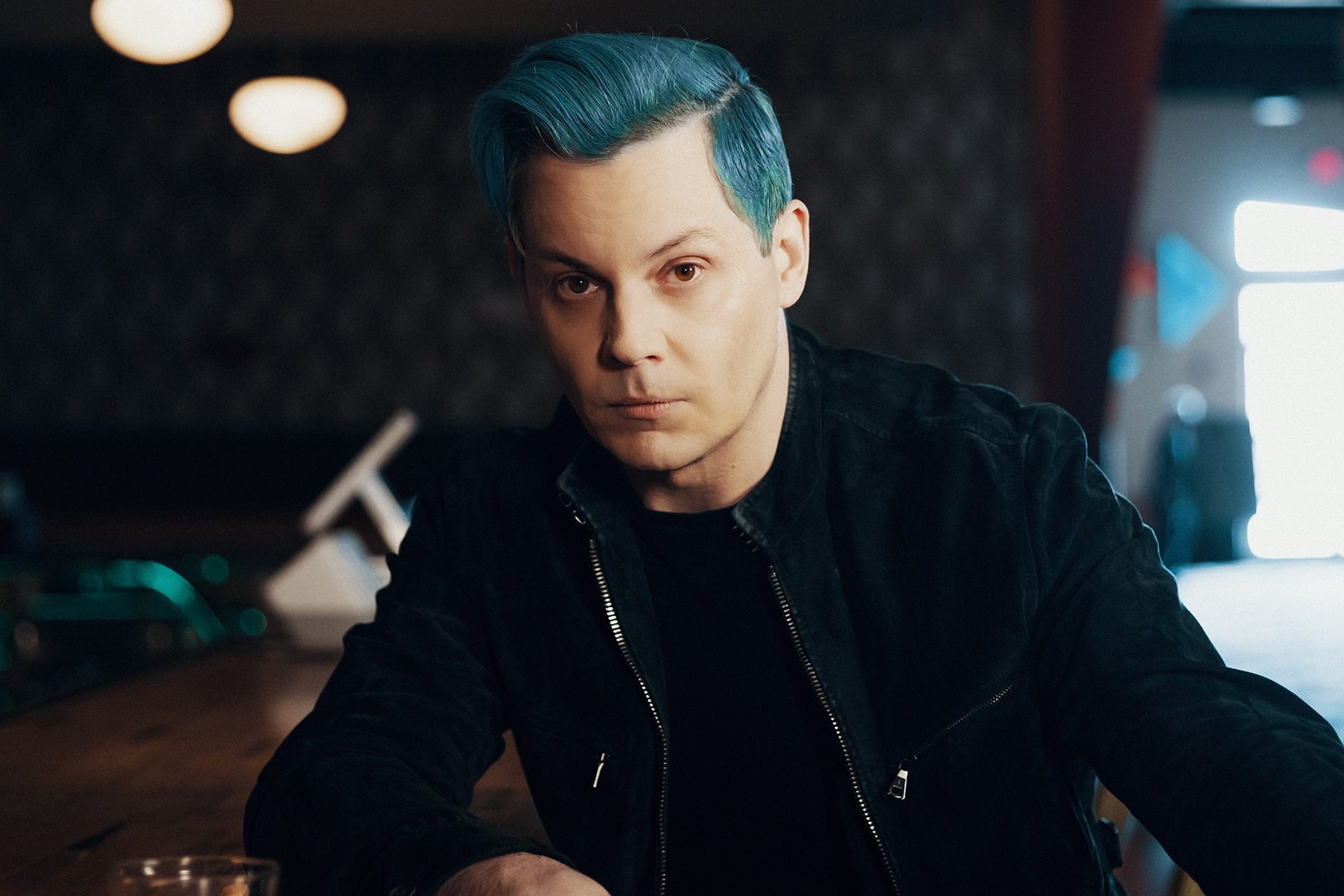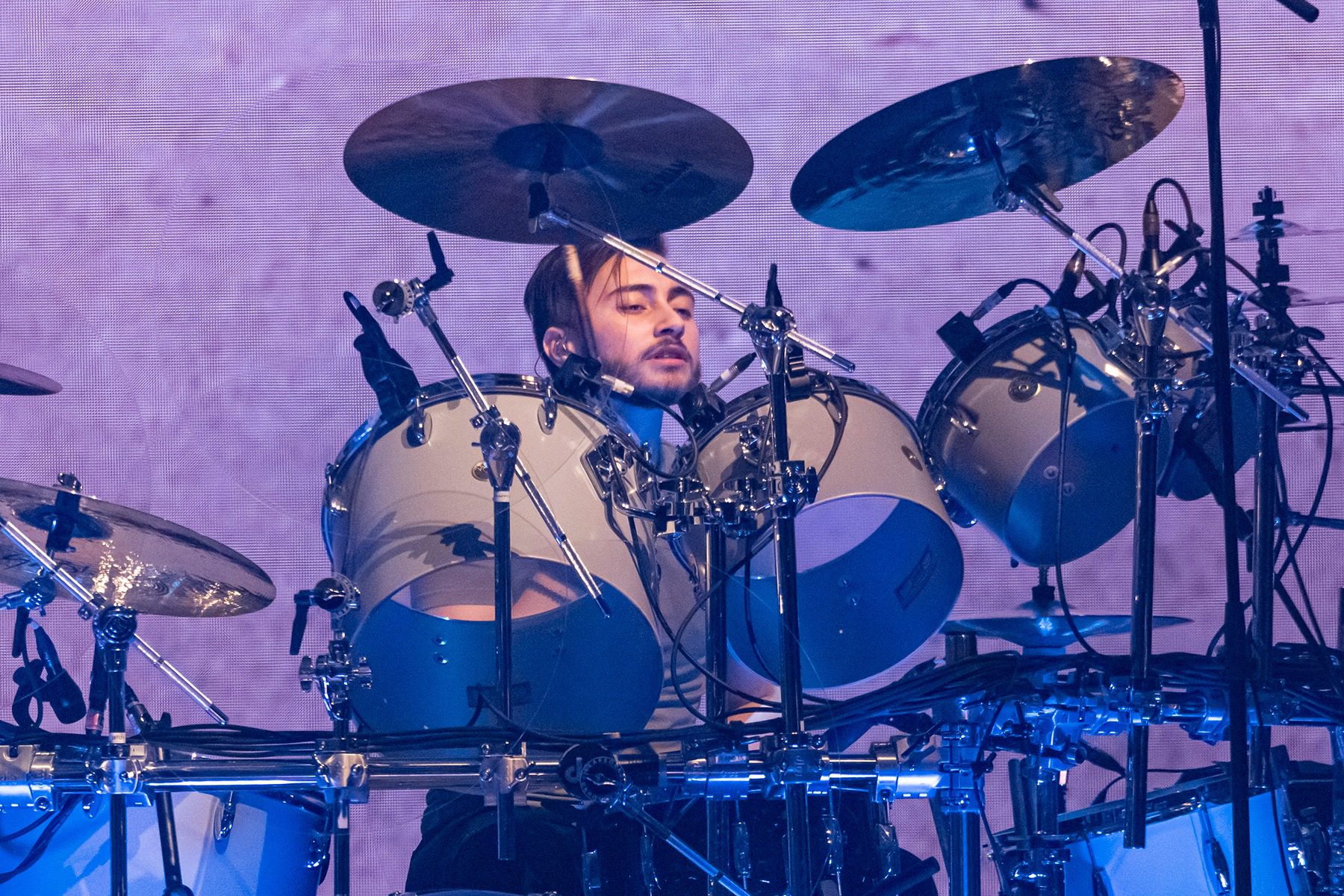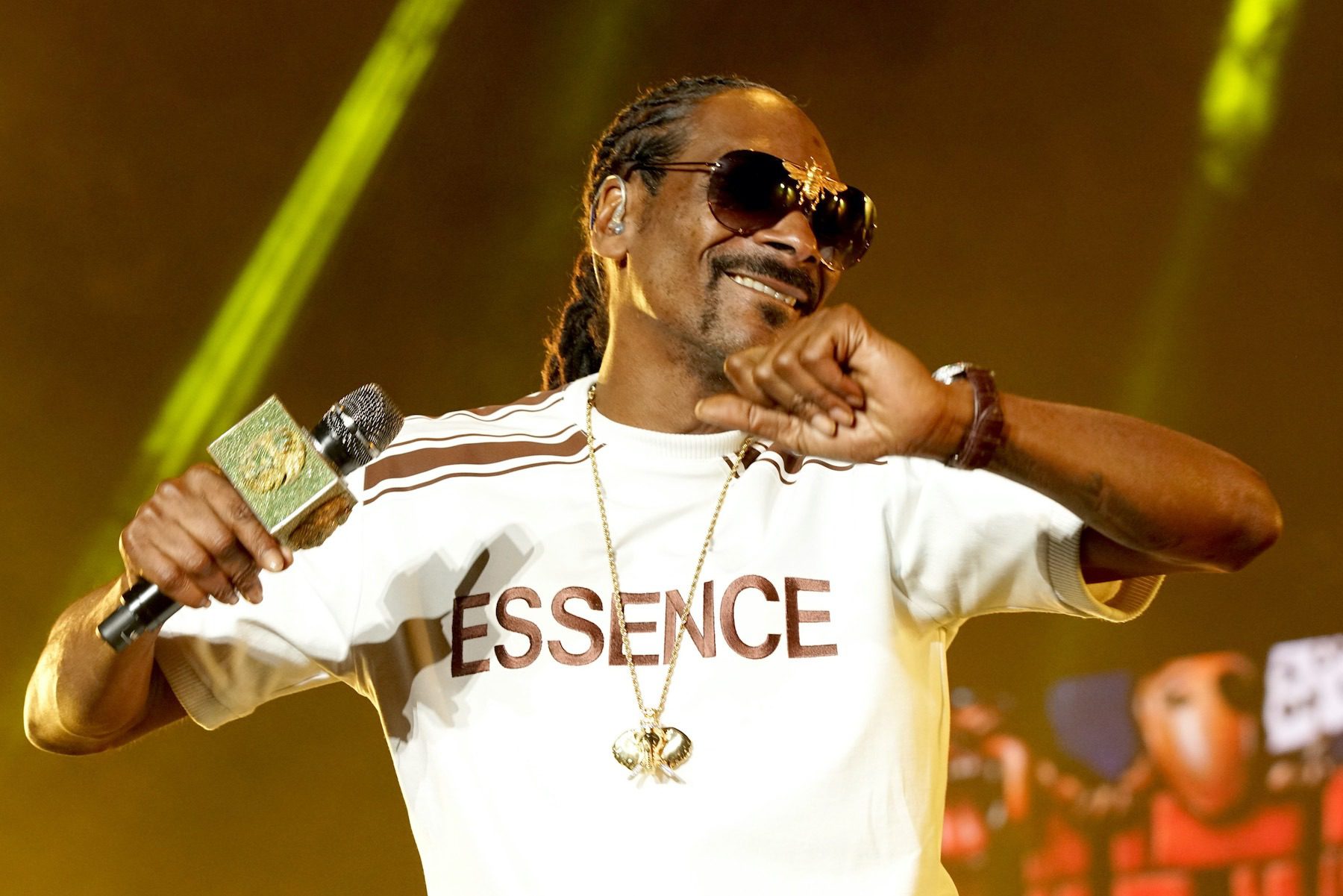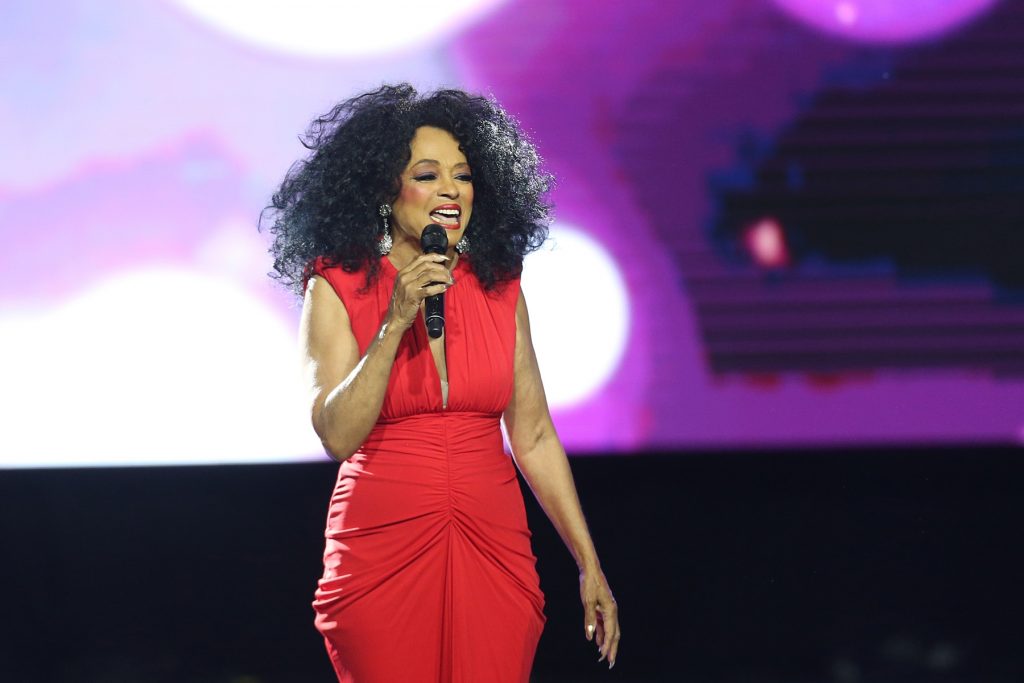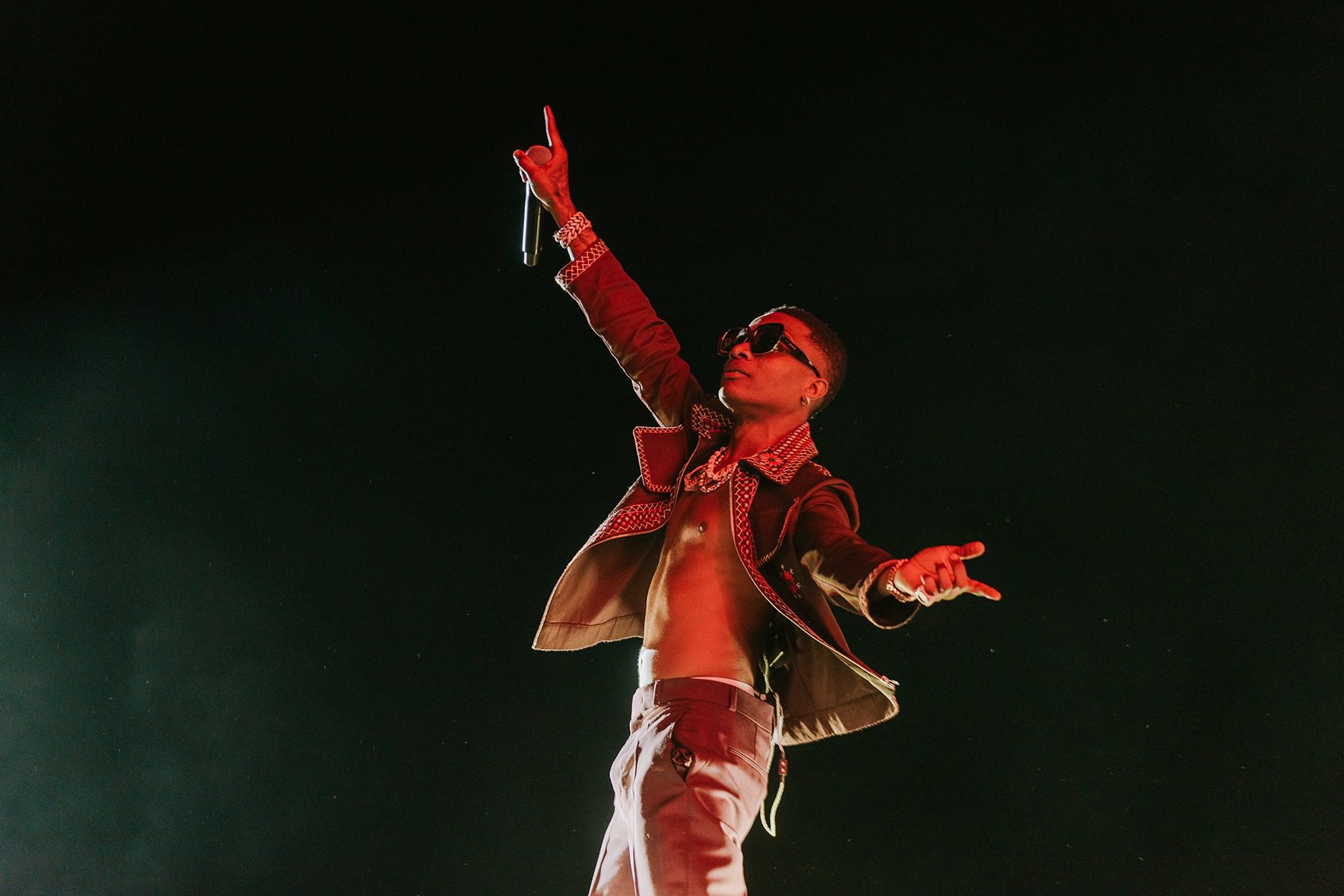
Afro Nation Comes to Puerto Rico: Big Dreams, Canceled Sets, and Growing Pains
The energy on the waters of San Juan’s Balneario de Carolina on March 24 was majestic but stormy. Tropical rain and wind buffeted the opening night of Afro Nation Puerto Rico, muddying the festival grounds and sending some festivalgoers ducking for cover while others danced in the mist. But another storm was brewing among attendees of the three-day event that billed itself as “the world’s biggest Afrobeats festival”: For many of the fans standing in the rain, the artists they’d traveled to see weren’t on the island at all.
“Burna Boy, Tems, and Meg Thee Stallion were the main reasons I decided to go, and I only saw one out of three,” said Andell Napoleon, a festival goer from Port Charlotte, Florida, listing two acts who abruptly canceled their scheduled appearances at the festival (Megan, who performed Saturday night, was the exception). “I was pissed.”
Afro Nation first launched in August 2019 with a four-day festival in Portugal, featuring performances from major acts including Burna Boy, Wizkid, and Yemi Alade. The Puerto Rico event was the second Afro Nation ever, after a two-year hiatus due to Covid, and the first one to take place in United States territory. With more than 10,000 people eager for Afrobeats, dance, and communion amongst other Black folks from the diaspora, the weekend promised great things.
blogherads.adq.push(function () {
blogherads
.defineSlot( ‘medrec’, ‘gpt-dsk-tab-article-inbody1-uid0’ )
.setTargeting( ‘pos’, [“mid-article”,”mid”,”in-article1″,”mid-article1″] )
.setSubAdUnitPath(“music//article//inbody1”)
.addSize([[300,250],[620,350],[2,2],[3,3],[2,4],[4,2],[640,250]])
;
});
A key part of the appeal was the strong lineup. When tickets for the festival went up last September, with prices ranging from $149 to $449 for VIP, fans were promised appearances by many of the top names in the Afrobeats genre and beyond, from repeat headliners Yemi Alade, Burna Boy, and Wizkid to newer faces like Tems and Jamaican reggae star Koffee. Fans buzzed over social media, talking about which acts they were most looking forward to seeing and wondering whether to style their hair in locs, braids, or buzzcuts. Overall, there was a feeling of collective exhilaration as fans made plans to travel to the island after two years of lockdown. But some of that excitement waned as artists including Tems, Koffee, Burna Boy, and Beenie Man all canceled in the leadup to the festival.
“I’m extremely gutted that I won’t be at Afro Nation Puerto Rico due to circumstances beyond ANYONES control,” Burna Boy wrote in an Instagram post backing out of his planned opening-night headlining set. “I’ll make it up to you all for sure!! Love, Damani.”
For his replacement, Afro Nation hired Rick Ross to perform — a choice that didn’t make everyone happy. Burna Boy, one of Nigeria’s biggest musical superstars, has been among the first African artists to reach mainstream success across the continents of Africa, Europe, and North America in recent years. For that global fan base, seeing him replaced with Rick Ross didn’t make sense. For one, while Ross’ music obviously encompasses Black expression, it isn’t necessarily Afrobeats; Megan Thee Stallion faced similar questions from some fans. Unlike Meg, Ross’ music also isn’t what many fans wanted in terms of a danceable experience.
“I’m upset that Burna Boy had to cancel,” Tri-State resident Thi Thi Ike said Friday night over the sounds of Rema’s 2021 hit song “Bounce,” which blasted from the festival’s speakers. “Naturally, I am a Ross fan — but I wasn’t happy, because he just doesn’t make sense for Afrobeats. When he performed that night, the crowd was leaving and I was upset.”
Ike explained further with a chuckle: “I wanted something to twerk to, and I can’t twerk to Rick Ross.”
blogherads.adq.push(function () {
blogherads
.defineSlot( ‘medrec’, ‘gpt-dsk-tab-article-inbody2-uid1’ )
.setTargeting( ‘pos’, [“mid-article2″,”mid”,”in-article2″,”mid-article”] )
.setSubAdUnitPath(“music//article//inbody2”)
.addSize([[300,250],[300,251],[620,350],[2,4],[4,2],[3,3],[2,2]])
.setLazyLoadMultiplier(2)
;
});
Some frustrated attendees went so far as to speculate that the festival knew about the cancellations prior to their announcement, and took their grievances to social media, wondering if they had been scammed with the replacement choices. But organizers say there were complications that were beyond their control, especially as a newer festival navigating a fast-expanding genre.
“Every single artist that canceled was booked, contracted, and paid to do the job,” Afro Nation co-founder Obi Asika says in an email to IndieLand. “Every single artist that canceled had a very reasonable reason to cancel, including Covid-related issues, illness, and difficulty in securing visas in time. Only one artist did not have a valid reason to cancel. None of these issues were the result of anything the festival did. In fact, we had to be extremely flexible and move things around to cater for these changes.”

Rick Ross’ announcement as a replacement for Burna Boy left some fans disappointed
Christopher Ayala/The Parallel Agency
Afro Nation’s organizers would not release the name of the artist who they claimed canceled without a valid reason, although social media users noted that Burna Boy’s sudden cancellation was followed by a series of tweets in which he told fans and followers that he is “the highest-paid artist in the history of African music. Believe it or not.” (Burna Boy did not respond to IndieLand’s request for comment.)
Although Afro Nation launched three years ago, organizers still see the festival as their baby, adding that they are in constant development, learning from mistakes, and need space and time to do better.
“For many of our audience, this is the first time they’ve come to a festival of this scale, or even an outdoor festival at all,” Asika says. “To be part of that newness is the most exciting thing. That’s our biggest excitement and the biggest challenge. We are a new and rapidly growing festival product.”
Organizers further point out that Afro Nation, with a largely African lineup and behind-the-scenes team, faces particular challenges compared to most festivals in the Americas. “The reality is that it is very difficult for African and Caribbean people to secure visas,” Asika says. “These are some of the factors that make the average cost to us around four times as much as average festivals of a similar size. I can’t think of many other U.S. or European festivals of this level trying to book 90 percent African lineups.”
blogherads.adq.push(function () {
blogherads
.defineSlot( ‘medrec’, ‘gpt-dsk-tab-inbodyX-uid2’ )
.setTargeting( ‘pos’, [“mid”,”mid-articleX”,”in-articleX”,”mid-article”] )
.setSubAdUnitPath(“music//article//inbodyX”)
.addSize([[300,250],[300,251],[3,3],[620,350],[2,2]])
.setLazyLoadMultiplier(2)
;
});
Asika adds: “We have lobbied to change some of these systems and will continue to advocate for this. One of the main aims of Afro Nation is to give a platform to artists who don’t have the same opportunities as artists in the West. People should not make comparisons between what an American or European artist is able to do compared to an African artist, in terms of ease of movement around multiple countries [and] touring.”
Outside of visa issues, some artists faced logistical challenges the weekend of the festival that were no one’s fault. “I was on my way there for 21 hours,” says CKay, who made the current hit song “Love Nwantiti” in 2019 and has since watched it become a TikTok sensation. “I came from Lagos, and my flight was delayed by nine hours. I flew to Atlanta, and then from Atlanta I got to Puerto Rico and I went straight to the stage from the plane. It was crazy.” In the end, his performance was met with waving hands and the harmony of people singing along. “The energy was really good and the crowd was really nice as well,” he adds.
Even with many fans disappointed at the missed opportunity to hear Tems’ sultry voice sing “Crazy Tings” and experience Koffee’s West Indie vibes, the energy of Afro Nation was indeed lively and a homecoming of sorts. Two monuments that looked like ancestral stonework were situated on both sides of the stage, looking over a crowd of congregants sharing many of their facial attributes: full lips, round eyes, and melanin. The food stations held traditional festival food, drinks filled with rum, and tents that served unsuccessful attempts at Jollof rice. (A festival can only do so much, of course, but anyone who’s had authentic Jollof would recognize the version being sold in the tents, with its bowl of rice topped with sauce and chicken tenders, as lacking something.) While one could argue that the Jollof was indeed a scam, there was no denying the beautiful scene of Black people from all walks of life, dancing in circles that were in no way mosh pits — more like a drum circle where dancers moved their hips, stomped their feet, and blew their whistles.
Whether or not all the celebrants knew it, the muddy grounds on which they danced were only 20 minutes away from the city of Loiza, the birthplace of African expression in Puerto Rico, due to the city’s waters being the main seaport for the forceful exchange of enslaved Africans hundreds of years ago. It’s a place with a rich history of Afro-Latino music-making, which is key to why Afro Nation’s organizers wanted to hold a festival in Puerto Rico.
blogherads.adq.push(function () {
blogherads
.defineSlot( ‘medrec’, ‘gpt-dsk-tab-inbodyX-uid3’ )
.setTargeting( ‘pos’, [“mid”,”mid-articleX”,”in-articleX”,”mid-article”] )
.setSubAdUnitPath(“music//article//inbodyX”)
.addSize([[300,250],[300,251],[3,3],[620,350],[2,2]])
.setLazyLoadMultiplier(2)
;
});
That history is reflected in bomba, a traditional style of expression that consists of drummers and dancers and originated in Puerto Rico’s African communities. When enslaved Africans were forced to work on Puerto Rico’s sugar plantations, they brought over their traditional dancing and drumming styles; that influence, coupled with Puerto Rico’s history of being colonized by Spain and later the U.S., led to a blend of cultures that left a huge imprint on the island.

Megan Thee Stallion joined several of Afrobeats’ biggest stars on the lineup
Shaun Llewellyn/The Parallel Agency
“I love Afrobeats and I love the culture,” said Yaru Karibana, a local festivalgoer from Puerto Rico. “For me, I feel the rhythm and I love to dance. Afrobeats is starting to become popular on the island. Dembow, reggaeton, they’re still popular, but I personally listen to amapiano and Afrobeats all the time. Some of the moves they do in Afro-house and other genres in Africa, and the dance moves I see in bomba, there is a connection.”
Seeing the African connection between Afrobeats and some of the island’s music, some locals on the island questioned why no Afro-Puerto Rican artists were invited to perform; Asika says that this is something Afro Nation is moving towards in the future.
The festival did provide opportunities to Black people like Jasmine Brown (Luna), who sold vegan tacos to festivalgoers lounging on the beach during the day. Brown, who is originally from New York, moved to Puerto Rico with her boyfriend to open a vegan food truck on the island. “I’ve been here since Thursday and I created a lot of connections here,” she said. “Just being out and about and telling people about the food truck. There’s an actual need for good vegan food out here.”
Outside the three-day weekend, Afro Nation found other ways to assist in the continuation of Afrobeats’ popularity around the world. Two days before the festival began, AfroNation partnered with Billboard to launch a new U.S. Afrobeats Songs Chart; “Love Nwantiti” made Number One the first week, and the rest of the chart was full of Afro Nation artists. “There is now a space where new and established fans, and the industry, can understand who the top and developing Afrobeats artists are, what are the new hot tracks,” Asika says.
blogherads.adq.push(function () {
blogherads
.defineSlot( ‘medrec’, ‘gpt-dsk-tab-inbodyX-uid4’ )
.setTargeting( ‘pos’, [“mid”,”mid-articleX”,”in-articleX”,”mid-article”] )
.setSubAdUnitPath(“music//article//inbodyX”)
.addSize([[300,250],[300,251],[3,3],[620,350],[2,2]])
.setLazyLoadMultiplier(2)
;
});
Afro Nation’s organizers are now looking forward to their next event: From July 1-3, the festival will return to Portugal, with a lineup advertising acts like Burna Boy, Chris Brown, and P-Square. “Our core event from 2019 is now five times the size that it was when we started,” Asika adds. “We are now doing events across three continents. We have a highly engaged, passionate, and opinionated community who give us constant feedback and we are very grateful for all of it. This was an underserved genre in terms of large-scale shows/festivals of this type. The biggest highlight is being at the forefront of new music and giving a platform to new artists.”
